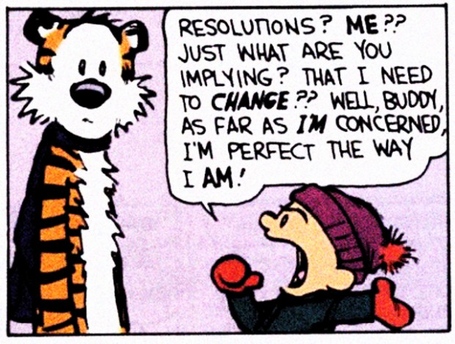If you’re reading this article, and also happened to make a New Year’s Resolution this year, there’s a good chance—seventy-three per cent to be exact—that you will break your resolution by the end of the year. If the McGill GPA scale makes more sense to you, that means that Canadians get about a B for failing to keep resolutions.
Many people end up breaking their New Year’s resolutions in comedic ways. One of my friends resolved to drink less in 2018, only to get thoroughly intoxicated at a New Year’s Eve party. Another friend texted me late at night on New Year’s Eve promising that in 2018 she wouldn’t use her phone for thirty minutes before bedtime each night.
Given the notoriously low success rates of New Year’s resolutions, many have denounced them as unimportant or trivial. Most of these arguments revolve around one crucial and rather cynical idea: There’s no point in setting goals that you know you are going to break. However, this discouraging reality doesn’t always need to be the case. Instead, aspiring goal-setters should focus on the ideas of incentive and gratification in order to set goals that they will find rewarding and remain motivated in the long run.
The reason most New Year’s resolutions fail is because people use strategies that are designed for keeping short-term promises, rather than achieving long-term goals. Although motivational speakers and proclaimed authors offer fleeting snippets of motivation, many fail to provide a consistent method for keeping resolutions. But there are good strategies out there. Perhaps the best advice I’ve come across comes from the book, //Emotional Success: The Power of Gratitude, Compassion, and Pride// by David DeSteno, a psychology professor at Northeastern University. DeSteno argues that the best way to stick to goals is by cultivating social emotions—gratitude, compassion, and pride—all of which help increase self-control and delay gratification.
To DeSteno, a key component of being able to stick to goals and be successful is the ability to delay gratification. A famous psychological study from the 1960s, dubbed “The Marshmallow Test,” by Walter Mischel, proves just that. In the study, children were given two choices: They could either take one marshmallow immediately, or wait a couple of minutes for two marshmallows. The marshmallows were always visible to the child during the experiment, and at any point they could ring a bell and ask for their treat; however, if they did so, they would be given only one marshmallow. Mischel found that children who were able to wait longer had higher salaries, better grades, and were less likely to be incarcerated as adults.
There are multiple strategies to delay gratification, and some are much more effective than others. One strategy, instinctively used by many goal-setters, is to use sheer willpower to keep resolutions. This strategy is often ineffective, and can be quite stressful for the person, making it very hard to keep goals. Studies done by Greg Miller, a psychology professor at Northwestern University, show that people who relied on sheer willpower could somewhat stick to their resolutions, but at the cost of a physical toll on their health.
The reason that gratitude, compassion, and pride help increase self-control is quite straightforward. Keeping healthy relationships—the foremost objective for social animals such as humans—involves acting morally; often times, acting morally means placing the interests of others above oneself—a form of self sacrifice. It is easier to sacrifice something, or to delay gratification, when a person feels compassionate or appreciative. Examples of this phenomenon abound; at least for me, I’ve spent more hours and put more effort into projects that benefit my close friends, such as making gifts for birthdays.
Research by DeSteno has confirmed this experimentally: When feeling grateful or proud, people are more willing to sacrifice their time and energy—a trait that is crucial for achieving goals. Grateful individuals are known to be more willing to help others, more likely to make mutually beneficial financial decisions, and so on.
So, the key to keeping your resolutions this year? Feel grateful. Take a minute to appreciate all that you have, and take pride in your work.
And hey, if that fails, here’s to trying again in 2019.








